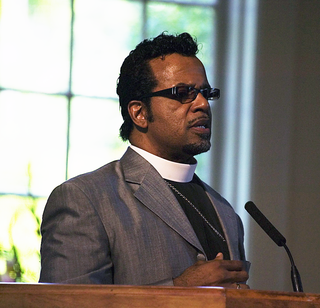A Quote by Jimmy Carter
I think there ought to be a strict separation or wall built between our religious faith and our practice of political authority in office. I don't think the President of the United States should extoll Christianity if he happens to be a Christian at the expense of Judaism, Islam or other faiths.
Related Quotes
Anytime that knowledge and a version of the truth are considered to be absolute, fundamentalism is the result, whether the arena is Christianity, Islam, Judaism, or any other religious faith, as well as atheism, conservative or liberal political views, even evolution or intelligent design. Anytime our minds are closed and there is no room for dissent, we are on a slippery slope towards stagnation.
Last year I was on Pat Robertson's show, and we discussed our basic Christian faith - for instance, separation of church and state. It's contrary to my beliefs to try to exalt Christianity as having some sort of preferential status in the United States. That violates the Constitution. I'm not in favor of mandatory prayer in school or of using public funds to finance religious education.
Science is only truly consistent with an atheistic worldview with regards to the claimed miracles of the gods of Judaism, Christianity and Islam. Moreover, the true believers in each of these faiths are atheists regarding the specific sacred tenets of all other faiths. Christianity rejects the proposition that the Quran contains the infallible words of the creator of the universe. Muslims and Jews reject the divinity of Jesus.
We are a people of different faiths, but we are one. Which faith conquers the other is not the question; rather, the question is whether Christianity stands or falls.... We tolerate no one in our ranks who attacks the ideas of Christianity... in fact our movement is Christian. We are filled with a desire for Catholics and Protestants to discover one another in the deep distress of our own people.
Religious institutions that use government power in support of themselves and force their views on persons of other faiths, or of no faith, undermine all our civil rights. Moreover, state support of an established religion tends to make the clergy unresponsive to their own people, and leads to corruption within religion itself. Erecting the 'wall of separation between church and state,' therefore, is absolutely essential in a free society.
There are hard texts in each tradition which we must confront and ask ourselves, 'Can we reinterpret those texts to allow us to live peaceably, and respectfully, with people of other faiths?' That is a job only Jews can do for Judaism, only Christians can do for Christianity, and only Muslims can do for Islam. But sometimes the sight of someone in one faith wrestling with that faith can empower you to wrestle with another faith.
You ought not to accept the claim that this is a religious practice. I think that's, frankly, problematic for Islam, for well-intentioned Liberals like you to say that this is a religious practice when the overwhelming consensus of Islamic scholars around the world, and the overwhelming majority of Canadian Muslims, believe this has absolutely - that the niqab as face covering, that this symbol of misogyny has nothing to do with Islam.
I think there is a lot of continuity between the Jewish and the Islamic traditions. We know this historically, though people don't want to talk about that - especially Muslims. There is a common source for both Judaism and Islam, or let's say that Islam finds its source in Judaism. The commonalities of practice and sensibility, ethos and mythos, create a lot of overlap.
That there's no link between Islam and Christianity and Judaism. There wouldn't be Islam if there wasn't Christianity or Judaism, because it's all one long line of revelation. Seeing it from that point of view it makes you ask yourself why Muslims sometimes separate themselves from that large family that leads to Abraham and, even before that, to Adam. The only answer is that we're conditioned to do it by thinking, Hey, I do things better than he does.
Rediscovering the controversies that occupied early Christianity sharpens our awareness of the major issue in the whole debate, then and now: What is the source of religious authority? For the Christian the question takes more specific form: What is the relation between the authority of ones own experience and that claimed for the scriptures, the ritual and the clergy?
The religions whose theology is least preoccupied with events in time and most concerned with eternity, have been consistently less violent and more humane in political practice. Unlike early Judaism, Christianity and Mohammedanism (all obsessed with time) Hinduism and Buddhism have never been persecuting faiths, have preached almost no holy wars and have refrained from that proselytizing religious imperialism which has gone hand in hand with political and economic oppression of colored people.
In the Christian world, as you remember, Christianity is in the 21st century, Islam is in the 15th century. I don't mean to say that Islam is backward; I mean to say that there are certain experiences that it hasn't gone through. Christianity had the great religious wars of the 17th century. Islam, fortunately for the Muslims, did not have that. Christianity worked out a system of toleration. Islam was always more tolerant of Christendom.


































